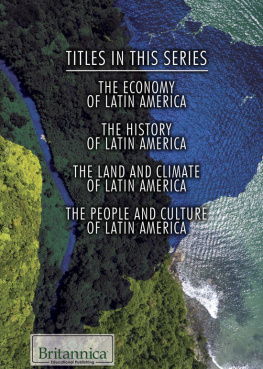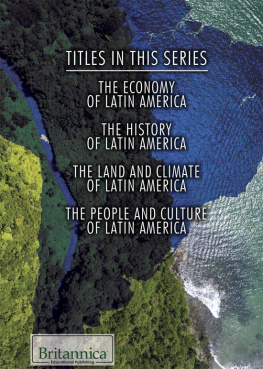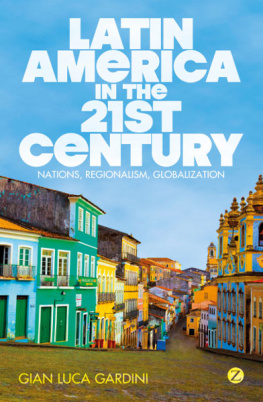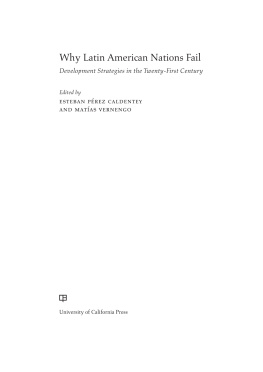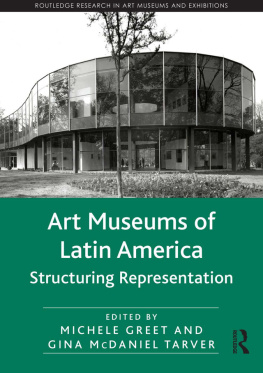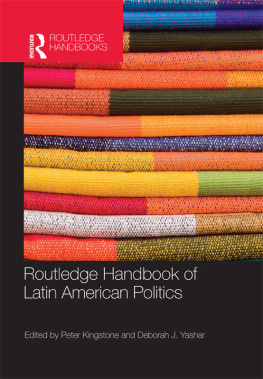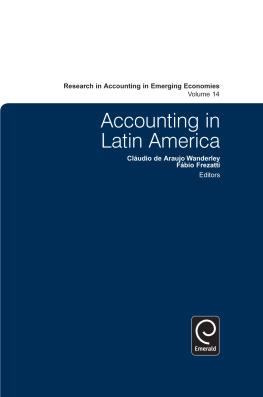Published with assistance from the foundation established in memory of Calvin Chapin of the Class of 1788, Yale College.
Copyright 2021 by Sebastin Mazzuca.
All rights reserved.
This book may not be reproduced, in whole or in part, including illustrations, in any form (beyond that copying permitted by Sections 107 and 108 of the U.S. Copyright Law and except by reviewers for the public press), without written permission from the publishers.
Yale University Press books may be purchased in quantity for educational, business, or promotional use. For information, please e-mail (U.K. office).
Set in Bulmer type by Westchester Publishing Services.
Library of Congress Control Number: 2020942447
ISBN 978-0-300-24895-1 (hardcover : alk. paper)
A catalogue record for this book is available from the British Library.
This paper meets the requirements of ANSI/NISO Z39.48-1992 (Permanence of Paper).
Contents
Acknowledgments
GERARDO MUNCK AND Ruth Berins Collier helped so much with this book that it would not exist without them. Gerardo read all versions of all chapters. His feedback could easily fill two book-length manuscripts. Yet quality trumped quantity. Each of Gerardos suggestions was an unambiguous improvement. Gerardo is a true scientist. I hope I have imported into this book some visible outcomes of his constant search for theoretical sophistication, empirical proof, and presentational clarity. Ruth is the gold standard of writing mentors. If I could give my students a fraction of the creative support she has given me, then I would feel accomplished. Ruth is a genuine intellectual. Her brain is a prodigious radar for good ideas. Dozens of times she forced me to pursue insights and rearticulate points that I thought were dead ends. Dozens of times she was right. I found intellectual gold at the end of the road she suggested. Gerardo and Ruth share an endless generosity. The support of both of them was in itself a life lesson. Infinite gratitude is not reserved only for loving parents.
David Collier is on many dimensions the person who most contributed to my scholarship. His encouragement as a mentor is uniquely powerful. Countless times David made me feel that my research and career mattered more to him than his own.
Robert Powells superior intelligence was directly or indirectly the guardian of all properly microfounded arguments the book has to offer. James Robinsons voracity for understanding politics in unfamiliar places has been an inspiration throughout my graduate school. A curiosity: in the process of helping me, Jim became a better expert on state formation in Latin America than I could ever be. Hillel Soifer is too young to do what he does: he produces creative, serious, and ultrahelpful feedback only. Three colleagues at Johns Hopkins, Nicolas Jabko, Steven Teles, and Adam Sheingate, provided outstanding feedback in a special workshop and superlative advice on almost every issue related to the production of this book. With Ernesto dal B, I share an obsession to understand Argentinas economic and political development. Ernestos support and feedback were as generous as they were smart.
I will never forget my long years of interaction with Guillermo ODonnell and Tulio Halpern Donghi. Throughout my education in Buenos Aires, Guillermo was the sun in my solar system. I recall vividly the moment I made the decision to study state formation in Latin America. It was when I first read about brown areas, one of Guillermos many conceptual innovations that instantly became a classic idea. Meetings with Tulio at the coffee shop at the corner of Center and Oxford in Berkeley were an intellectual feast. A single sentence by Tulio was a thousand lessons in history. I owe him the ability to see nineteenth-century politics in Latin America not as a foreign languageas it seemed to me until my late twentiesbut as a familiar, inviting, and extremely rewarding place to visit. There is nothing I would have liked more than to give Guillermo and Tulio a copy.
Three colleagues in my department, Steven David, Daniel Deudney, and Robert Lieberman, helped me see bigger questions when I was convinced I had already asked the biggest ones.


